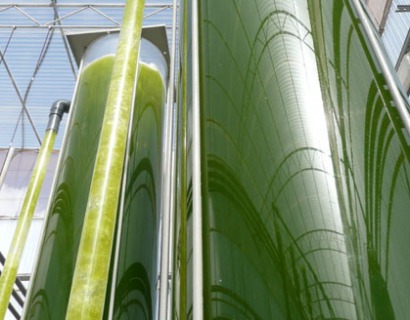
Repsol Chairman, Antonio Brufau, hosted the visit which was also attended by Spain’s Minister for Science and Innovation, Cristina Garmendia, the British Ambassador to Spain, Giles Paxman and the Mayor of Móstoles, Esteban Parro, as well as other guests.
During the tour of the facilities, the princes were shown some of the innovative research projects on bioenergy that Repsol is carrying out in the centre, one of Europe’s most advanced technological research and development hubs.
They also had the chance to greet those taking part in the Spanish-British Seminar on Algae Biofuels and Other Industrial Applications being held in the centre. A number of Spanish and British bioenergy experts are taking part in the event that has been jointly organised by Repsol, the Ministry of Science and Innovation, the British Embassy and the Spanish Biomass Technology Platform (Bioplat).
They then visited the Repsol Technology Centre bioenergy laboratory, where they were able to see first-hand how the company is progressing in the development of energy crops, microalgae and high-tech plastics for agriculture.
The Repsol Technology Centre is one of the most advanced of its kind in Europe and the largest in Spain. It covers an area of 56,000 square metres where 400 researchers use cutting-edge techniques to create an energy model capable of meeting the needs of today’s society.
In this Centre, opened in 2002, Repsol develops technology that enables it to provide energy that is both safe and environmentally friendly. The Repsol Technology Centre is involved in a number of national and international research projects and collaborates with universities and companies specialising in a variety of subjects. It is built around several operating areas which specialise in different technological aspects including energy efficiency improvements, fuels development, ecological farming, new types of energy, refining, chemicals, and exploration and production.
Repsol sees R&D as a key factor to achieving a more efficient and sustainable energy system which is why it has drawn up a Strategic Technology Plan as part of its business strategy. In 2010, Repsol invested 71 million euros in research and development projects.
For additional information:

